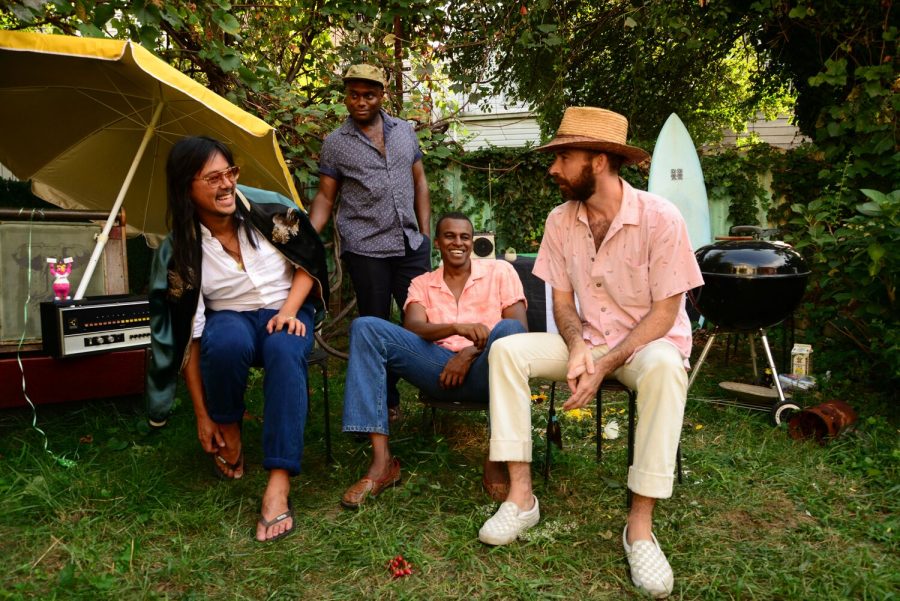Sinkane returns to Chicago with new album ‘Life & Livin’ It’
Sinkane, Sudanese-American singer Ahmed Gallab, released his latest album “Life & Livin’ It” Feb. 10 and will play Lincoln Hall, 2424 N. Lincoln Ave. Feb. 23.
February 20, 2017
Reggae? Check. Jazz? Check. Rock? Check. Psychedelic? Check. Blending different music genres can be a juggling game, but Sinkane’s jazz-electro-African music does the job while offering some guidance for navigating life.
“If we illuminate ourselves / We’ll overcome / Find something to love,” sings Ahmed Gallab, the man behind the moniker, on the song “U’Huh.” The London-born, Sudanese and American-raised artist is all over the board with his percussion-heavy music, but just like his cultural background, he proves he cannot be categorized.
Sinkane played with indie rock bands of Montreal and Caribou in 2008, which helped him gain musical success and start Sinkane. The New York-based musician’s new album, Life & Livin’ It, was released Feb. 10, just in time for his Chicago show Feb. 23 at Lincoln Hall, 2424 N. Lincoln Ave. Chicago is the first place Gallab played as Sinkane, so coming back to the Windy City will be a special treat, he said.
The Chronicle spoke to Gallab about New York, visiting new cities and how his cultural music background influences his sound.
THE CHRONICLE: How has your background influenced your music?
AHMED GALLAB: I was able to experience how a lot of young people experience the world. Throughout the U.S. and in Sudan, everyone experienced the world differently and was exposed to information very different from one another. What I realized is we are all connected, and we are all very similar in understanding and feeling things. Although young kids experience the world differently in Ohio versus Sudan, when they do feel happy—they feel happy the same way.
I would find these relationships with all different kinds of music, and they would make me feel the same. I went back and did a bunch of research on all these kinds of music, and I realized they were all connected.
When you are touring in a new city, what is the first thing you want to know about it?
Where to eat. Eating is the most important part of touring, other than playing music, obviously. You have to eat well, and it’s the one thing that will expose you to the culture of the town in the most honest way. Barbecue is my favorite and really, whatever is local to the town—and in America—barbecue seems to be one of the biggest cultural aspects.
How has New York’s music scene treated you?
It has been very welcoming and very fun because it has been a bit of a challenge. There are a lot of people who live in New York who want to do music and are just as ambitious as I am, so it has been a challenge trying to figure out my place. But the community here—now more than ever—has been so beautiful because when I moved to New York [in 2009] a lot of the indie bands [were] blowing up and were super competitive. The more they got attention, the more they became interested in what was going to happen for themselves.
Now, the scene is a bunch of musicians that want to play together, do a bunch of projects and have fun. Getting the opportunity to do something beyond that feels great and everyone gives each other a high five. It has allowed me to become a better musician, and the fans are really excited about everything.
My music is very diverse and it melds a lot of different cultures and that is what New York is about: It’s a melting pot of people.








